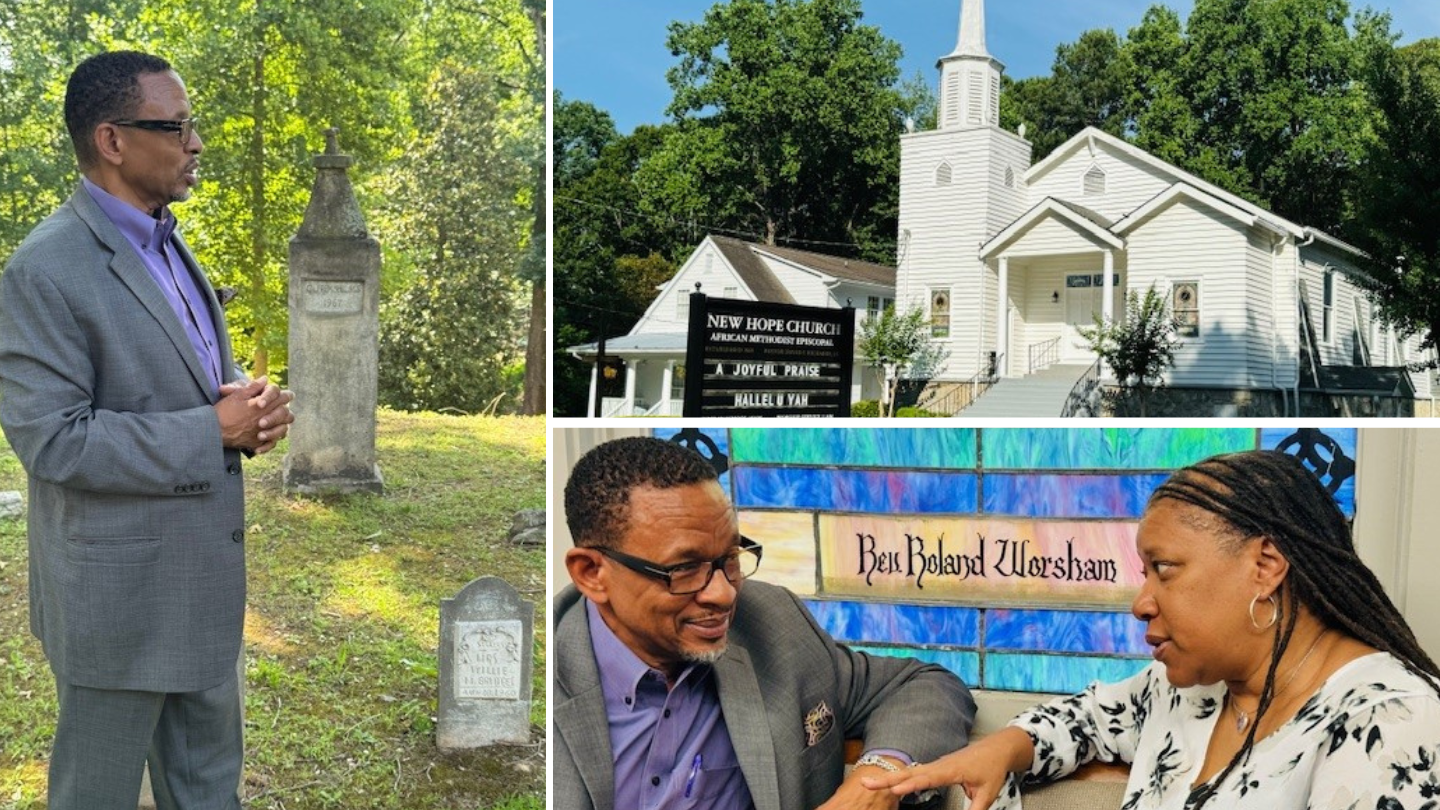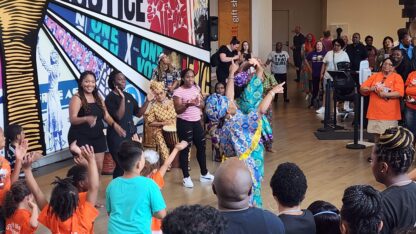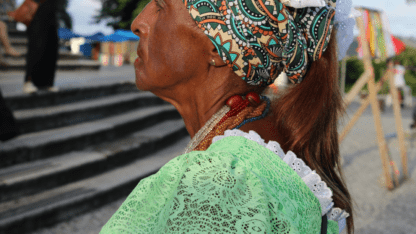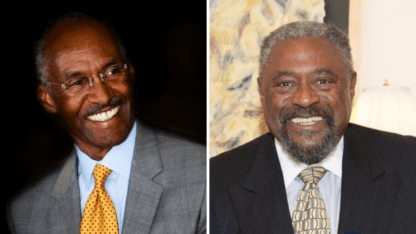For 155 years, legacy of enslaved people lives on at a historic Black church in Buckhead

Partly wood, vinyl and stone, New Hope African Methodist Episcopal Church is uniquely nestled inside Atlanta’s Buckhead neighborhood, an area full of million-dollar homes. However, Pastor David F. Richards III says a spiritual oasis resides inside the historic house of worship.
This year marks the church’s 155th anniversary. Richards says visitors feel something when they step inside the sanctuary.
“We say it’s the spiritual presence of the ancestors because those kings and queens who were taken from Africa, forced into labor, cleared the land, planted crop tobacco and planted cotton, built this country,” explained Richards.
“This church is 155 years old. It’s the original church. It’s the original wood because back during that time, indentured servants could not buy quality products.”
According to the church’s website, New Hope’s origins date back to 1869. Before the church building was established, emancipated African Americans gathered to worship God at “camp meetings” at the New Hope Campground.
In 1872, Buckhead farmer James H. Smith willed three acres of land for a church or school for “colored persons.” It’s the same land New Hope’s campus is on now.
In 1927, the church building was destroyed by a fire. It’s believed that building was built before the 1900s. Church members also built a tabernacle, which stood there until 1965.
Richards says it’s a blessing to serve as the pastor of a Black church with such a rich history. He says the genuine love and passion that people feel when they fellowship at the historic church comes from the church members themselves.
“We are on, I would say, our fifth generation of bloodline that built the church, that cropped the fields – that made this area what it is today,” said Richards as he talked with “Closer Look” show host Rose Scott for a sit-down interview inside the church.
Behind them is a stained, colorful church window that bears the name of the church’s first pastor. Richards says Rev. Roland Worsham was born enslaved but died a free man.
For Part 1 of the interview, Scott talks with Richards about the church’s response to the pandemic and racial unrest following the police killing of George Floyd. He also talked about the importance of prayer without ceasing and why he believes faith leaders should come together to have continuous conversations about solutions amid the Israel-Hamas war.
Faith leaders should come to the table,” said Richards. “You can’t do it over a few days. This has evolved over thousands of years.”
He further explained that God loves everyone who gives credence to love and uplift.
Part 2 of the interview picks up at the church’s cemetery across the street from the church. Richards talks with Scott about the cemetery’s history and notes that the church’s first pastor and WWII soldiers are buried on the grounds. He also shows Scott the graveyard that sits directly behind the historic church, where enslaved members of the original house of worship are buried.
As the interview ended, Richards pointed out the church’s stone foundation. He says enslaved people from Africa, who understood the importance of having a place to worship, built it, all while living through difficult times.
“Remember how people served to make a difference,” said Richards. “We must remember.”








